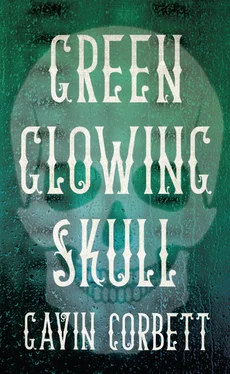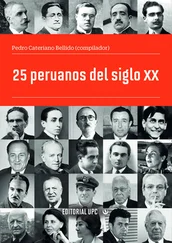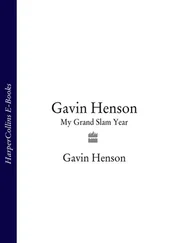‘I mean it. I think you should come home.’
‘Will you be there?’
‘I’ve told you before, I’m not going anywhere.’
‘So you will be there?’
‘I’ll be in Dublin, yes.’
‘Well stay safe.’)
***
Rickard and Fondler met a couple of evenings later at a diner of her suggestion. When he got there she was already seated at a table at the low central partition. She gave him a tepid smile across the floor. Her hands were clasped, palms upward, in front of her on the table, and he dared to touch them as he took his seat. They were cold, and damp, like a mound of potato peel. Her hair tonight was messily tied up in ribbons, like a prayer bush aflutter with rags. There was something obscurely wrong with her, just as there was something obscurely wrong with him.
He remained silent, for he sensed that he had already communicated his discomposure, and he did not want to blunder. He looked around him: over the low partition; back at Fondler. Something further seemed to deflate from her; she looked down at her conjoined hands, at the upturned fingers stiffening, like slow-growing tendrils in speeded-up time. It was a glimpse of disappointment — the first glimpse of disappointment — after all the magic and glitter of the last day. He could not safely locate this disappointment; he was sure it was in both of them. He privately reproached himself. He looked down at his trousers, in case his flies were undone.
Finally she said:
‘My name got drawn out in the lottery. Please come to Minnesota with me. Observe a moment in time.’
***
He had never been further west than Riverside Drive, and he had never been at a Viking funeral before.
On the stroke of midnight, after three hours of propitious faintness (so far from city lights, there was a sherbet tinge to the sky; later, some said it was the dust churned up by the Valkyrie; another said it resembled ‘a screen the moment before hibernation’), a blast of a horn, reminiscent of a note of whale song, swept through the pines and the still Midwestern air and over the palisades. The door of every cabin down the slope stood open and silhouettes of figures waited, framed by the light behind them, each as if for the command of another to lead them on to the stake-paved path and down to the forest road. The smell of turf drifted from the open doorways, and then a movement of grey figures at the bottom of the slope pulled everyone into its tide. The portent was false: the mood of the mourners was not dour; it was jocular, even, although the chat and laughter did not rise above a whisper. Ahead, a flaming torch led the line. Here and there electronic devices were held aloft for added light, their soft blue screens bobbing in the darkness like luminous moths.
The forest road opened to a plain of even and dry though spongy ground. Far off to the left and right the dark treeline continued against the faintly glowing night. From all directions, from many paths in the forest, hordes of mourners pooled on to the plain. Flaming facias on long poles were skewered into the ground, spaced regularly apart. The crowds settled into a crescent formation around the head of a lake, or to the point that the rushy ground would allow. The lake stretched away into the darkness, more like a sea. The surface was silver glass and held the picture of the moon without any degradation of the satellite’s power. A black tuft, like a brush head, poked out of the water around where the silver became darkness. A flame could just about be seen flickering in the tuft. The mourners waited, all eyes on the island. A small dark blip appeared in the clear silver; only when it was near the shoreline could the shape of a small Viking galley be made out, sitting high in the water, its prow cresting to a carving of a cat’s head with mouth set in a wrinkled and pained cartouche. A team of men waded through the soggy littoral ground and into the water, either side of a wooden track. The boat hit the track underwater with a crunch. The oarsmen threw ropes to the team of men, who dragged the craft into a flat-bottomed stabilising frame half in the water. The boat was left in this position for several minutes, the team of men having to dig their heels into the bog to keep the ropes taut. They waited like this until, one on each side of the boat, two rafts had caught up. One carried Guru Mahseer Chaudhuri, wearing robes of pink and beads of white and blue; Guru Chaudhuri had been Townsend Thoresen’s spiritual adviser since, as an eighteen-year-old, Thoresen had run away to India. This raft also carried the rock star Rainy Fairmount, who was shaking and wearing a life jacket. On the other raft was a tall blond local Scandinavian man, who wore dark woollen robes secured around the waist with vines of ivy. Once the raft passengers were on land, the boat, in its stabilising frame, was hauled on to the track’s rollers and fully out of the water and on to the plain, and lugged in time with the slow pace of Guru Chaudhuri and Rainy Fairmount on one side and the Scandinavian man on the other. The track ran out at the top of a low flat-topped mound. Here the boat was left to rest. The oarsmen laid their oars against the gunnel of the craft and climbed out, down a rope ladder. In the centre of the boat was a cube-shaped cabin. It was understood that grave goods had already been left in the cabin. These might have included the various iterations of Townsend Thoresen’s technological innovations, plus charms. Young ladies in white robes ascended the ladder and spent some time in the cabin. One of the ladies’ tasks was to tie Hel-shoes on the corpse, which would be needed if Thoresen’s passage to Valhalla included time in the Hel-world. The ladies left the cabin and two men followed soon after. Then some more men climbed the ladder and produced buckets of tar from inside the cabin. The tar was dripped down the sides of the boat. Once everyone living had left the craft the hull was torched. The flames licked up the splashes of tar and took a while to eat into the wood. But soon the wood of the hull was glowing, and the cube collapsed into the flaming ribs. Men stood near to the fire casting into it green bushels. A great amount of smoke was produced, gathering and twisting into a pillar, which became huge and thick and rose to the sky that resembled a screen the moment before hibernation.
The horn that sounded like whale song rang out again and everybody seemed at peace. Then the funeral ale was passed around, which made heads berserk, and the mood became morose, and the next phase was entered.
The body was delivered in a glossy white casket, brought upright in the service elevator, and rested across a trestle table borrowed, by the Mac An Fincashel brothers, from a caterer. There were no Christian or any other religious symbols on the lid of the casket; only a yellow sticker that said BIODEGRADABLE. The lid was attached by suction or a snug fitting; certainly not by weight: Jeremiah and Rickard were surprised by how light it felt (‘like polystyrene,’ said Rickard) as it came off.
‘He looks only beautiful,’ said Denny’s seventy-eight-year-old sister, Geraldine, who had flown over from Ireland the day before. It was Geraldine’s first time in America, and the first time she had seen her older brother since the early sixties, which was the last time Denny had visited Ireland. She had arrived at the apartment directly from Appledorn’s enormous New Jersey outlet, with her fifty-two-year-old daughter, Karen, the both of them laden with bags of shopping. The chairs in the apartment were draped with new coats, dresses and handbags and the door handles were hung with frocks. Ladies’ shoes and balls of tissue paper littered the floor. Geraldine and Karen were tipsy at this stage: the Mac An Fincashel brothers had set out the wake table with cans of beer and bottles of spirits for the evening’s spree. Karen, who wore a sequined top that revealed almost the entirety of her deep pink prickled bosom, kept lifting her knee into Emmet’s behind.
Читать дальше
Конец ознакомительного отрывка
Купить книгу












